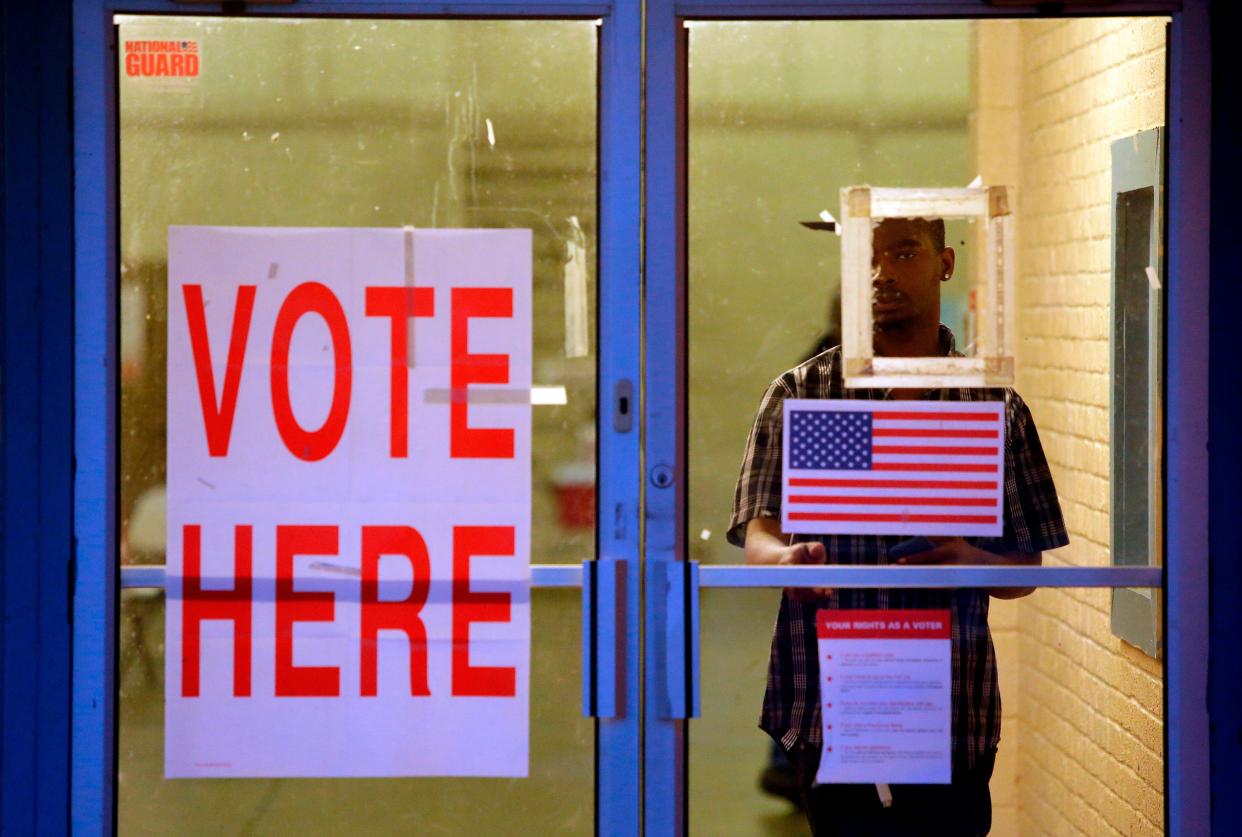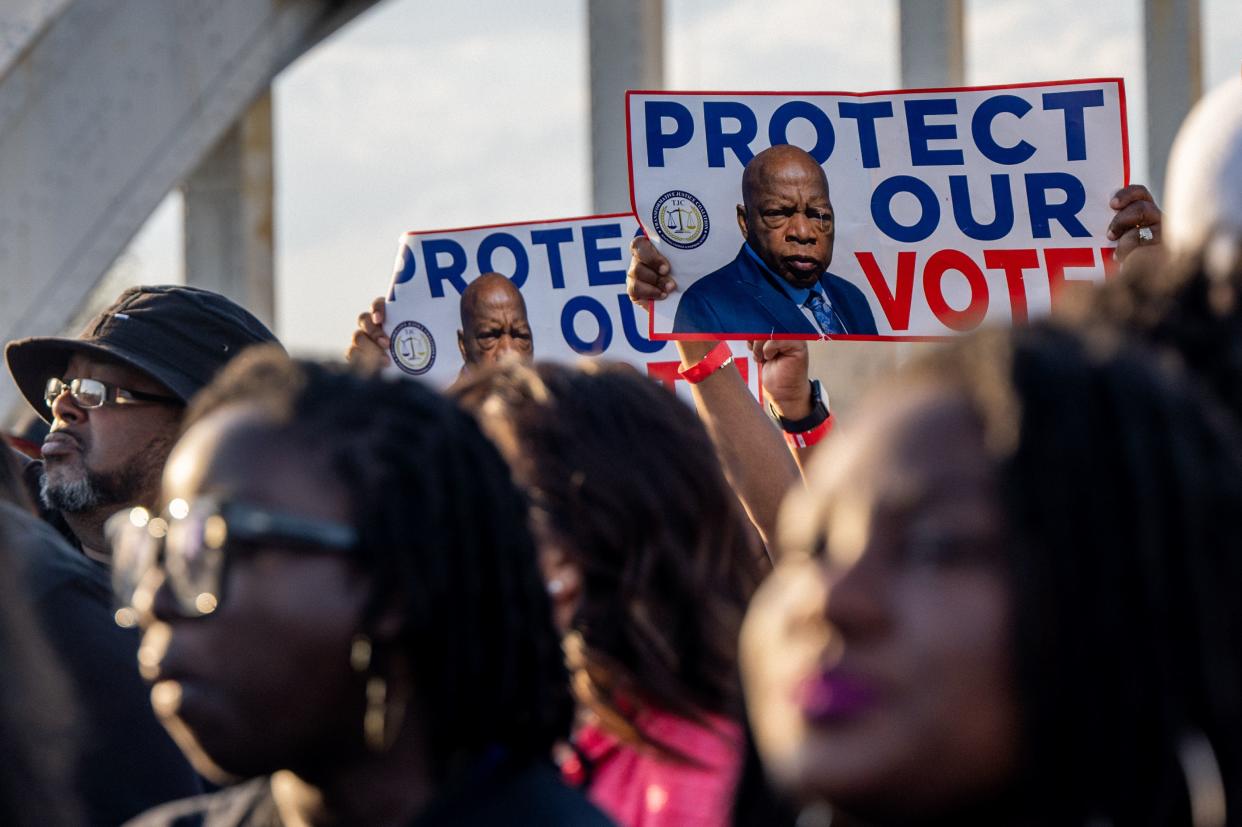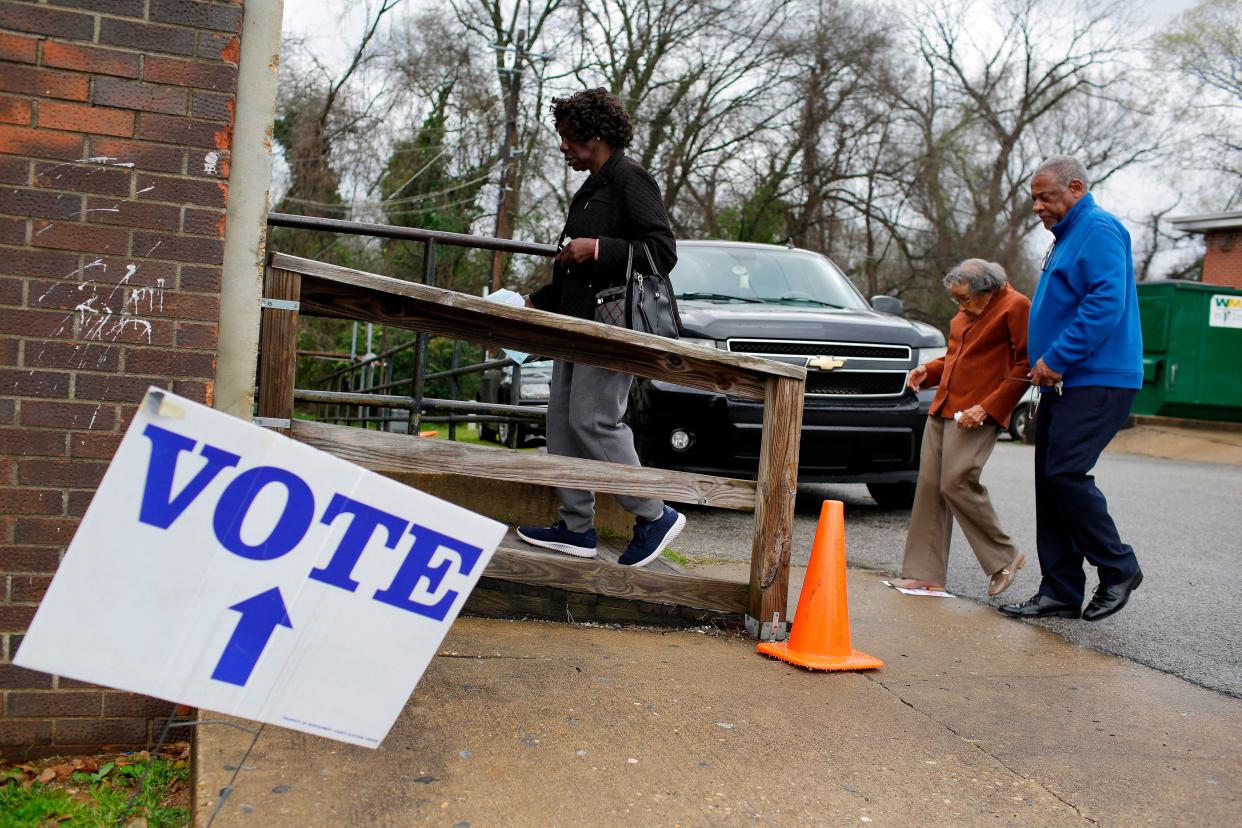Supreme Court to hear arguments on Alabama’s racially gerrymandered congressional map
The Supreme Court is set to hear arguments Tuesday in a Voting Rights Act challenge to Alabama’s racially gerrymandered congressional map that could further weaken the landmark civil rights measure.
The majority-right-wing justices could give their blessing to a map that effectively limits Black voters to dominate one out of the state’s seven seats even though they comprise more than 25% of the state’s electorate.
A decision like that would also further limit the impact of the law intended to help minority voters overcome decades of oppression.
“This is just about getting Black voters, finally, in Alabama the opportunity to elect their candidates of choice. It’s not necessarily guaranteeing that they will have their candidate elected,” said Deuel Ross, senior counsel at the NAACP Legal Defense and Educational Fund.

A voter exits a polling station at the National Guard Military Base during the presidential primary in Camden, Alabama on Super Tuesday, March 3, 2020. (JOSHUA LOTT/)
But Alabama Republicans, who dominate all elected statewide offices and both state legislative chambers, say they did not consider race when drawing the lines that would guarantee the election of six GOP lawmakers.
“The Voting Rights Act does not force states to sort voters based on race,” Marshall said in a statement. “The VRA is meant to prohibit racial gerrymanders, not require them.”
A three-judge panel that included two appointees of President Donald Trump ruled unanimously in January that the map likely violated the Voting Rights Act.
The judges ordered state lawmakers to draw new lines for this year’s election and create a second district where Black voters either made up a majority or near majority of the population.

People march across the Edmund Pettus Bridge with placards bearing the image of the late U.S. Rep. John Lewis, for whom the most recent voting rights bill is named, during commemorations for the 57th anniversary of "Bloody Sunday" on March 06, 2022 in Selma, Alabama. (Brandon Bell/)
But the Supreme Court voted 5-4 to allow this year’s congressional elections to take place without adding a second predominantly Black district, a sign that they are likely to rule in favor of Republicans.
The lawsuit claims the Alabama congressional map dilutes the voting strength of Black residents by packing a large number of them into a single district while splitting other Black communities among the remaining six districts.
The map gives the vast majority of Black Alabama voters no realistic chance to elect their preferred congressional candidates anywhere outside the 7th district, now represented by Rep. Lori Sewell (D-Ala.).
It even splits the historic majority Black city of Montgomery down the middle.

A voter enter a polling station at Floyd Middle Magnet School during the Democratic presidential primary in Montgomery, Alabama on Super Tuesday, March 3, 2020. (JOSHUA LOTT/)
Several states in the Deep South, most notably South Carolina, Tennessee and Louisiana, used similar tactics to limit Black voters to only a single seat when they could easily have been given majority status in two districts.
In Arkansas, GOP lawmakers effectively locked Black voters out of all four of the state’s seats.
Squeezing Black representation in the states of the old Confederacy could help the GOP regain control of the House of Representatives if the midterm elections are close.
“If the VRA doesn’t apply in the Black Belt of Alabama,” said Michael Li of the Brennan Center for Justice at New York University, “it is hard to see it applying in many places.”
With News Wire Services
